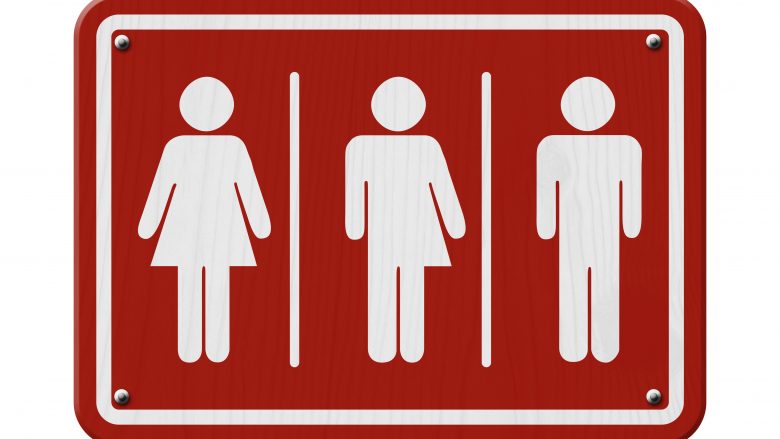Waxing Case Flares Up In Massachusetts Gender-Identity Law Debate
By Matt McDonald | October 17, 2018, 12:29 EDT

Advocates on either side of the gender-identity-law referendum clashed over whether the current law requires a female spa worker to provide a bikini wax for a biological male who identifies as a woman.
The Milton beauty parlor case, first reported by New Boston Post, provided one of several flashpoints during an hour-long debate Tuesday between Kasey Suffredini, co-chairman of the Yes on 3 campaign, and Andrew Beckwith, president of the Massachusetts Family Institute, who argued for a No vote to repeal the law. The debate took place on Radio Boston on WBUR FM-90.9.
At stake is Question 3, a statewide referendum that asks Massachusetts voters if they want to continue or end a statute enacted in 2016 that prohibits discrimination on the basis of gender identity in public accommodations such as restaurants, bars, beauty parlors, public bathrooms, and locker rooms. A Yes vote continues the law as is; a No vote repeals it.
Question 3 does not affect a 2012 state statute that prohibits discrimination on the basis of gender identity in employment, housing, education, lending, and credit. Instead, it would repeal the 2016 law that added “public accommodations” to the list.
The would-be customer in the Milton case asked the Massachusetts Attorney General late last year to force a spa owner to provide him a “full Brazilian” three times free of charge in compensation for having an appointment cancelled by the spa. The would-be customer had previously described in detail on the telephone intimate hair-removal services the customer wanted, but when a spa worker balked the customer settled for a less inclusive appointment for hand and foot services, as a means of trying to get spa workers to feel comfortable enough for a subsequent more extensive appointment. The spa owner subsequently cancelled the initial appointment and referred the customer to a male spa owner who provides hair removal services for men.
The would-be customer filed a complaint with the Massachusetts Attorney General’s office claiming gender-identity discrimination, then withdrew it a few weeks later, but could re-file it any time.
“Under the law that we’re trying to repeal, that transgender woman, with a penis, will probably win,” Beckwith said.
Suffredini said Beckwith’s interpretation isn’t correct.
“This law does not require anybody to touch anybody that they don’t want to touch,” Suffredini said. “It’s really clear. That would be an improper purpose.”
As for the transgender customer, Suffredini said the spa owner did the wrong thing.
“She scheduled a manicure-pedicure, and when the owner found out that she was a transgender woman, she cancelled the appointment. I think we can all agree that that’s wrong, and she should have her nails treated like anybody else,” Suffredini said.
Later in the debate Beckwith fielded a different question, about political tactics, and then returned to the waxing dispute.
“But I want to just circle back to the spa case, because the co-chair for the Yes on 3 campaign, Kasey, your co-chair, Mason Dunn, is the attorney who helped file this complaint. And in the complaint this anatomical male is demanding that he get his genitals waxed by the female technician of his choice. And that is the type of thing that I couldn’t even have predicted that this law would do. But it’s one of the unintended consequences. And I would ask you, Kasey, do you believe that female spa workers should have to touch anatomical men on their genitals if they’re uncomfortable doing that?” Beckwith said.
Suffredini said the law doesn’t require unwanted touching.
“Of course this law does not require people to touch other people if they don’t want to. That is just patently false, to even suggest that,” Suffredini said. “And you don’t have to take my word for it. Large and small businesses – there are hundreds across the state that have endorsed this law – would not have done so if it does. But it’s important for voters to think about what message we send if we repeal this law. If we repeal this law we take a proactive stance as a state saying that we are comfortable and we can tolerate discrimination against transgender people. I think that most voters would agree with me that that’s wrong.”
Beckwith kept at it.
“Again, your legal analysis must be different from your co-chair’s,” Beckwith said. “Because the way this law operates, that man, because he identifies as a woman, is entitled under this law to the Brazilian bikini wax and the fact that the spa worker refused to give it renders her in violation of this law that you’re supporting.”
Suffredini, a biological female who identifies as a man, brought up everyday situations that transgender people encounter — for instance, if a fiancee calls and asks Suffredini to stop at the supermarket for oregano, Suffredini wants to be able to get it.
But Beckwith said that as a practical matter Question 3 wouldn’t affect such situations, because the Massachusetts Commission Against Discrimination ruled in 2015 – before the public-accommodations law was passed – that it would treat gender-identity complaints as sex-discrimination cases.
The real issue, Beckwith said, is bathrooms and locker rooms.
Opponents of the gender identity law call it the Bathroom Bill, because it requires that public bathrooms be open to people who identify with a gender other than their biological sex – meaning anatomical males who identify as women can use women’s bathrooms and locker rooms.
Beckwith said the dispute over Question 3 doesn’t have to do with transgenderism, but rather with the safety and comfort of women and girls.
“We have men’s rooms and women’s rooms because male bodies and female bodies are different. And that’s really all we’re trying to maintain a recognition of, is that women should not be forced to be in intimate places with male bodies,” Beckwith said. “And I think most women — doesn’t matter to them how the person who has that male body identifies. If there’s a male, intact, anatomically male body with male genitialia in a locker room or shower next to them, that may make them uncomfortable. And what the Yes on 3 campaign fails to do is respect that concern at all.”
Later in the debate, a caller asked whether public bathrooms all ought to become gender-neutral, with the idea that if anyone feels uncomfortable about that should just avoid them.
Beckwith disagreed, while acknowledging that the conflict sets up mutually exclusive values.
“Here’s the question: What do you do? You have an anatomical male who identifies female, so they’re not comfortable using the men’s room, they want to use the women’s room. You have anatomical biological females who want to use the women’s room. They’re not comfortable with male bodies in those spaces,” Beckwith said. “So you have two conflicting rights to privacy and comfort. This law says that the biological women lose every time. And if they speak up or try to stop a male presence from entering those rooms, they face legal penalties. So I would ask Kasey: Do you believe biological women have a right to object to a male body in a public shower or locker room that they’re using?”
Suffredini said transgender people don’t pose a safety threat to women and that they need the ability to use public bathrooms in order to function in society.
“I believe that there is no reason to think that transgender people are any less modest or believe in safety and privacy or value it any less than anybody else,” Suffredini said. “I don’t have an opinion on gender-neutral bathrooms, but I do have an opinion on bathrooms. And that opinion is this: Transgender people are human beings. I am a human being. I have to use the restroom every couple of hours, just like everybody else. And if I can’t use a restroom when I’m out at a restaurant, or I’m at my best friend’s wedding, or I’ve stopped by the bank or I’m in a grocery store, then how am I supposed to go to those places? How am I supposed to function in public spaces?”
One of the hosts asked Beckwith how state law would work if public bathrooms were segregated by sex as opposed to gender identity.
Beckwith suggested it would likely happen on a case-by-case basis, as it did before the law was enacted.
“I think if this law were repealed we go back to the way things were two years ago. I’m sure at that point most people used the facilities that made the most sense for them,” Beckwith said. “… The concern is people abusing this law and going into restrooms, and then women not having the right to speak out against it.”
He cited schools that allow transgender students to allow a third space outside of the boys and girls’ locker rooms, such as a nurse’s room or staff bathroom.
“So we have to find a way, a commonsense solution to protect the privacy, safety, and comfort of everyone,” Beckwith said.
Suffredini said that uncertainty poses a problem when it comes to enforcement.
“I shudder to think about how we would police the bodies question,” Suffredini said. “… I think that is very, very dangerous, and there is nothing to suggest that it is necessary.”
Suffredini also expressed concern about what the rest of the country would take from a rejection of the gender-identity-in-public-accommodations law.
“Certainly if Massachusetts chooses to repeal this law, they will send a message to people all over the country that Massachusetts is not a safe or welcoming place for transgender people. And I think about people like, you know, Chastity and Kelly and other folks who actually moved here, they fled other places where there was discrimination against transgender people, to come somewhere where there wouldn’t be discrimination,” Suffredini said. “If, and hopefully when, Massachusetts votes to uphold this law, I think they will send a message to the nation much like the one they sent when they passed the law in the first place in 2016, with the support of a broad coalition of businesses, law enforcement officers, and progressives and conservatives, that this is not about policy or politics, this is actually just about people. We’re human beings, and we want to be able go about our daily lives. We’re not doing anything wrong, and we want to be left alone.”
Beckwith said the current law puts women at an unacceptable disadvantage in vulnerable places.
“There’s been a lot of discussion over the past year, especially in the past few weeks, about the importance of listening to women when they speak up about being threatened sexually. This law tells them they have to let men into intimate spaces, and they’d better be quiet about it. I think that’s terrible, and a dangerous mistake, and we should repeal this law,” Beckwith said.
Question 3 goes to Massachusetts voters on Tuesday, November 6.











